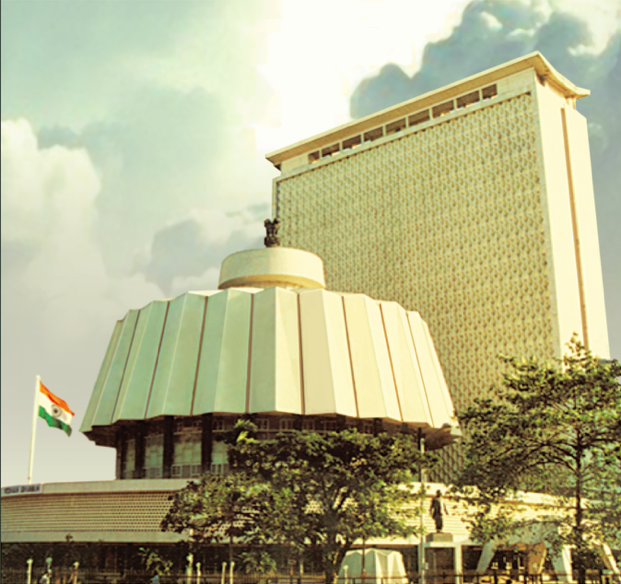
Maharashtra Legislative Assembly
Also read: Haryana results make MVA circumspect in Maharashtra
Latest News | Food | News in Hindi | Diaspora | Titbits | Sports | Today's Pick | Artist's Gallery | Nature | Finance | Film | Entertainment | GB TV | Podcast

Maharashtra Legislative Assembly
Mumbai: The outcome of Maharashtra’s Assembly elections will affect the state’s growth trajectory. The voting in Maharashtra is on November 20, and the counting of votes will begin on November 23, 2024.
The contest between the ruling Bharatiya Janata Party (BJP)-led Mahayuti alliance and the opposition Maha Vikas Aghadi (MVA) coalition could profoundly impact the state’s economic direction. The two alliances have distinct plans, and their economic policies target key voter concerns like employment, industrial development, agriculture, and social welfare. Each side’s victory would have contrasting implications for Maharashtra’s economy and industries, especially in agriculture, infrastructure, and investment climate.
A victory for the Mahayuti alliance, which includes the BJP, Eknath Shinde’s Shiv Sena, and Ajit Pawar’s Nationalist Congress Party faction, would likely continue their recent economic agenda. This alliance has already secured large-scale investments in energy, electric vehicle manufacturing, and semiconductor industries. Prominent projects, such as the semiconductor plant by Tower Semiconductor and the Adani Group, are projected to add thousands of jobs and boost Maharashtra’s industrial growth.
Another key Mahayuti policy has been infrastructure expansion, with extensive investment in energy and transportation networks, including a major railway expansion and the Vadhavan port project, which could facilitate Maharashtra’s position as a trade hub in India.
Also read: Haryana results make MVA circumspect in Maharashtra
Their pro-investment stance is expected to attract further domestic and foreign capital, potentially aiding Maharashtra’s goal of a $1 trillion economy by 2030. They’ve also pledged social welfare programmes, such as the “Ladki Bahin” financial aid scheme for women, aiming to secure key voting blocs.
On the agricultural front, Mahayuti’s plans focus on improving water access for irrigation and tackling rural distress through targeted subsidies and loan waivers. However, their recent handling of issues like the Maratha reservation and export bans has drawn some criticism, especially in rural areas. Addressing these issues effectively could be crucial to ensuring support among rural voters and agricultural sectors.
A victory of the opposition MVA would trigger a shift toward social welfare and localized development especially for underprivileged and marginalized groups. MVA has proposed ambitious financial support schemes, including higher monthly assistance for women compared to Mahayuti’s offer, and pledges to provide Rs 4,000 per month to unemployed youth. These initiatives, combined with MVA’s focus on healthcare improvements and agricultural subsidies, suggest an economic strategy that prioritizes poverty alleviation and employment within existing industries.
The MVA also aims to address local economic grievances by emphasizing decentralized industrial development, promoting Maharashtra Industrial Development Corporation (MIDC) centres across less developed regions to generate jobs locally. This strategy could balance the economic focus across Maharashtra’s diverse regions, helping districts like Vidarbha and Marathwada, which have experienced economic disparities compared to urban hubs like Mumbai and Pune.
In terms of industrial policy, MVA might seek to counteract the migration of industries to states like Gujarat by strengthening incentives for manufacturing and services within Maharashtra. This could impact the long-term industrial development of the state, potentially slowing the massive external investment drive seen under Mahayuti’s governance. Nevertheless, MVA’s policies might resonate strongly with the urban working class and rural communities, positioning them as champions of Maharashtra’s grassroots economy.
Hence, the election results could have a lasting impact on Maharashtra’s economic landscape, influencing everything from industrial development to social welfare priorities. While a Mahayuti victory could bolster Maharashtra’s appeal to high-tech and energy sectors through its pro-investment policies, an MVA win may refocus efforts on social welfare, equitable growth, and local job creation.
Regardless of the outcome, the challenges of managing Maharashtra’s extensive economic diversity—spanning urban-industrial hubs and agriculture-dependent rural areas—will require the winning alliance to navigate complex regional demands and foster sustainable growth across all segments of society.
– global bihari bureau
About Us | Our Team | Privacy Policy | Contact Us | eMail Login | News Portal Powered by M/s. eHC
